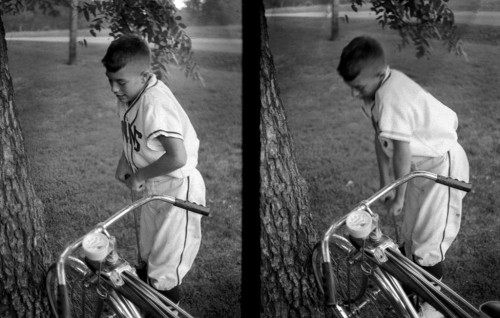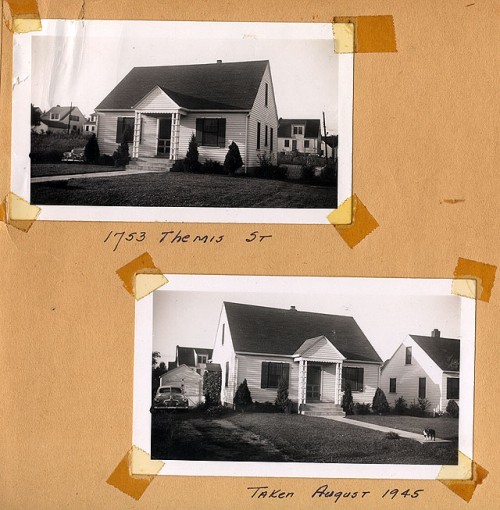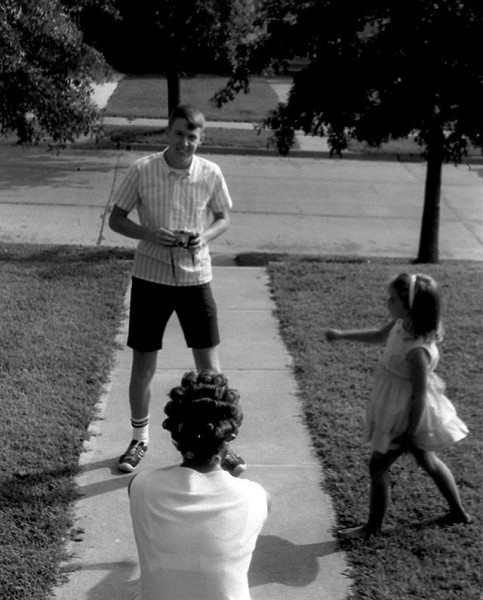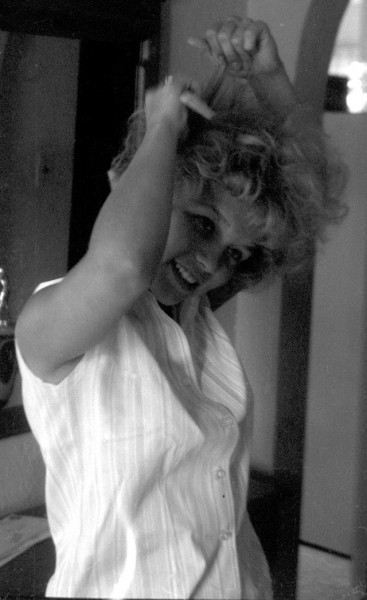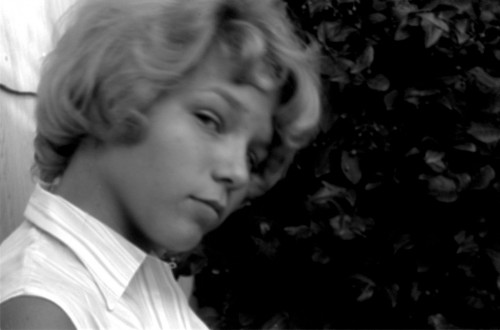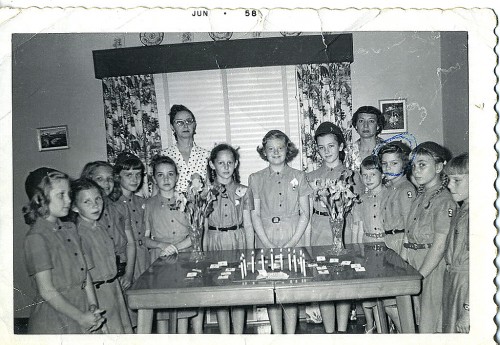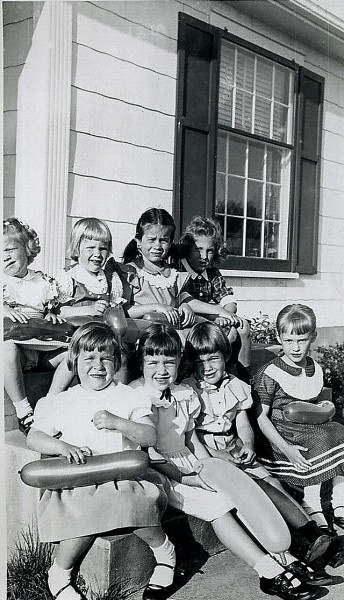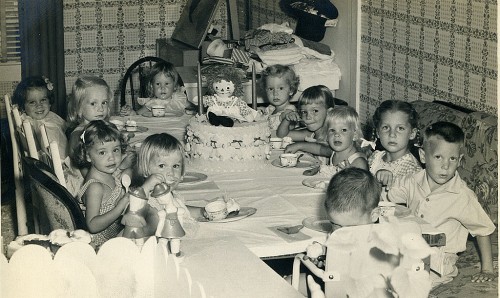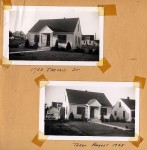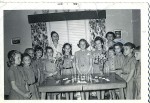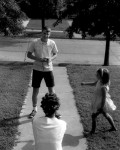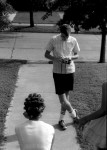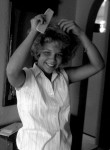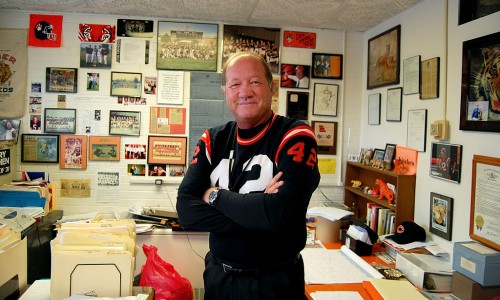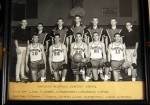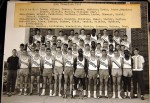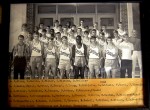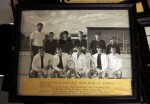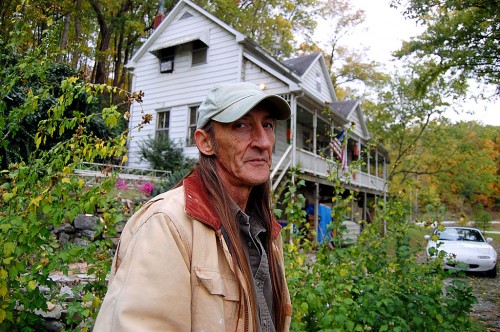 I’m not exactly sure what draws me back to Wittenberg on almost every trip to Cape. There’s not much to see. There are only two buildings and three people left in the town. David Holley is one of them. I knocked on his door to get permission to go into what was called the Wittenberg Bomb Shelter when I photographed it in 1966. I’ll have more photos and stories about the German community in the future.
I’m not exactly sure what draws me back to Wittenberg on almost every trip to Cape. There’s not much to see. There are only two buildings and three people left in the town. David Holley is one of them. I knocked on his door to get permission to go into what was called the Wittenberg Bomb Shelter when I photographed it in 1966. I’ll have more photos and stories about the German community in the future.
The last train robbery
While he was catching me up on what he knew about Wittenberg, he told me that what some folks call the last train robbery in the state – if not the whole country – took place just up the tracks from his house. Watch the video to hear his version of the story in his own words.
Last of the Jesse James Gang
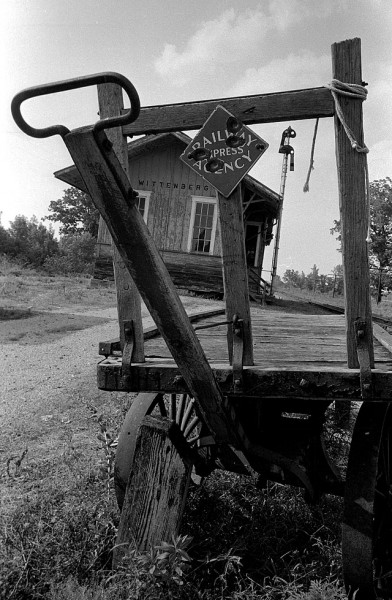 History’s a slippery thing. David has the general story straight, but some other accounts have the names and some minor details a little different. (He admits that he takes things he hears with a grain of salt.)
History’s a slippery thing. David has the general story straight, but some other accounts have the names and some minor details a little different. (He admits that he takes things he hears with a grain of salt.)
Here’s one that talks about the history of Seventy-Six, Mo., and the robbery.
In October, 1922 the St. Louis – San Francisco train was robbed two miles north of Wittenberg. Over $100,000 was taken before the robbers were shot at the little bridge in Wittenberg. One of the Robbers turned out to be Jack Kennedy, also known as “Quail Hunter” Kennedy, the last of the Jesse James gang.
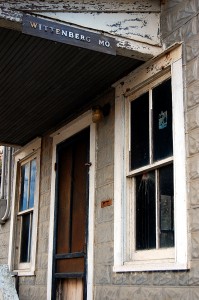 Jack Kennedy had become a member of the James gang at 17. Although frequently incarcerated over the years, he was never convicted of murder and always managed to win parole. He went weeks before the train robbery roaming the Frohna area, where he lived in the woods and plied a trade of knife and scissor sharpening. He knew that each fall money was sent from St. Louis banks to Memphis, Tennessee.
Jack Kennedy had become a member of the James gang at 17. Although frequently incarcerated over the years, he was never convicted of murder and always managed to win parole. He went weeks before the train robbery roaming the Frohna area, where he lived in the woods and plied a trade of knife and scissor sharpening. He knew that each fall money was sent from St. Louis banks to Memphis, Tennessee.
After determining the best location for a bank robbery would be between Seventy-Six and Wittenberg, he and his two accomplices board the train and put their plan into action. While on gunman held the passengers captive, another searched the mail bags and located the packages earmarked for a certain bank in Memphis. The train was then disconnected from the locomotive and a baggage car while Kennedy, with a young dark-haired accomplice, got on the locomotive and took off into the night.
Bad choice of accomplice
About 100 yards south of the Wittenberg bridge, the robbers, each carrying a mail bag, left the train after opening the engine throttle and sending the locomotive and baggage car onward. Unfortunately, Jack Kennedy made a judgment error in choosing his third accomplice. This accomplice, chosen by Jack Kennedy because he had a car – essential to the getaway plan, was to wait for Jack Kennedy and his on-board accomplice to complete the robbery. What Jack Kennedy didn’t know was the accomplice he had so carefully selected was a Federal Marshall.
On that October night, the conductor, engineer, and the firemen on the train were aware of the planned robbery. Expecting Kennedy to release the locomotive, they made sure the fire was burned down when the robbery occurred. Quickly running out of steam, the locomotive stopped just seven miles down the track. The bank robbers, thinking they had successfully gotten away with the robbery, were surprised after leaping from the train to hear voices shouting “Halt!” Jack Kennedy didn’t halt. Instead, he pulled his six-shooter out, and he and his young accomplice were shot dead. Their bodies were taken to Mr. P.J. Lueder’s studio, where they were propped up and photographed while onlookers gazed at the gory sight.
The young accomplice turned out to be Robert Ford, an Oklahoman who had idolized Jesse James and, in an effort to imitate him, couldn’t resist joining with Jack Kennedy when a chance meeting put them together.
Another version of the robbery
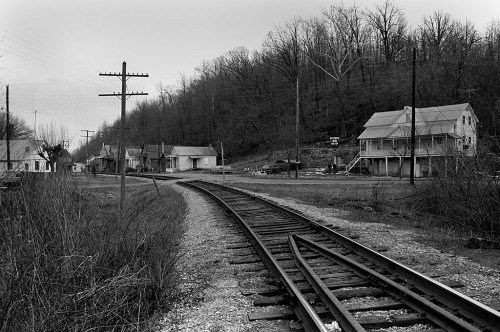 While visiting the Altenburg Lutheran Heritage Center & Museum, I picked up a copy of the Perry County Historical Society’s book, Wittenberg, Perry County, Missouri.
While visiting the Altenburg Lutheran Heritage Center & Museum, I picked up a copy of the Perry County Historical Society’s book, Wittenberg, Perry County, Missouri.
It had an account of the robbery that said the young accomplice was Lawrence Logsdon of Memphis. When his parents came to claim his body, which had already been buried, they said he had never been away from home until three weeks prior to the shooting. He had a clean record before meeting up with Quail Hunter Kennedy.

